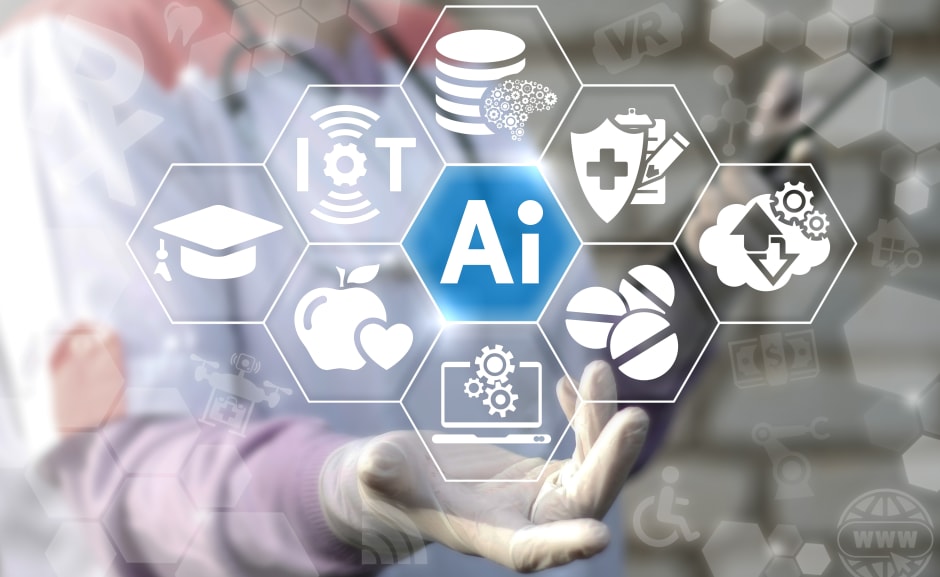Technology is essential in all walks of life, but nowhere is it as important as medicine and healthcare. Thanks to the numerous technological advances in medicine all through the years, humans have been able to live longer, healthier lives and thus focus on other areas of improvement.
And even though there has been a great deal of unique technologies in healthcare in recent years, there are even more exciting ones on the horizon. Below we look at ten emerging technologies in healthcare that everyone should get excited about.
1. Artificial Intelligence
Artificial intelligence has once again taken its place at the forefront of exciting new technologies bound to shape the next few decades. There is no limit to the roles that AI can play in medicine.
For starters, AI is proving crucial for detecting diseases early and ensuring that diagnoses are confirmed faster. For example, it can be used in mammograms to increase speed and accuracy by 30 times and 99%, respectively.
It has also shown massive potential in areas such as overseeing early-stage heart disease, creating comprehensive treatment programs, and aiding drug research and discovery.
2. Virtual Reality
Virtual reality remains one of the most exciting technologies on the horizon, not only in medicine but in almost all industries ranging from entertainment to social media to communication.
Virtual reality can treat and manage various conditions in medicine, from autism to anxiety and dementia. Apart from its effectiveness in treating mental health issues, it can also be used to manage physical pain by positively manipulating thoughts and perceptions.
Moreover, many experts have expressed confidence in the possibility of VR being used in diagnosis, training, rehabilitation, and even cancer therapy and surgery.
3. mRNA Technology
mRNA, short for messenger ribonucleic acid, finds its most popular application in vaccine development, although its use transcends just this scenario alone.
The technology enjoyed a recent renewal of interest from the public thanks to its application in COVID-19 vaccines. It continues to excite experts in medicine thanks to its effectiveness, low production costs, and ability to be developed quite rapidly.
4. Crispr
Crispr is an abbreviation of Clustered Regularly Interspaced Short Palindromic Repeats. It is a gene-editing technology that is the most advanced yet. CRISPR cuts out infected DNA strands by harnessing the natural mechanisms of the immense systems of invading viruses.
The technology is capable of revolutionizing the way we treat diseases. It can make treating some of the most elusive diseases, such as cancer and HIV, possible in only a few years.
Gene editing, of course, remains a controversial topic as many regard it as “playing God.” Nonetheless, the immense value Crispr offers cannot be ignored as it can be used to correct genetic defects and increase food supply by increasing crop resilience to diseases.
5. 3D Printing
3D printing may seem like a technology that has been around for quite a while now (and it has), but it continues to enjoy numerous novel applications in medicine, and we would be remiss to leave it off the list.
Some of the most exciting emerging applications of 3D printing in medicine include creating implants and prosthetics, presurgical planning, and bioprinting of blood vessels, synthetic ovaries, and even the pancreas.
6. Telemedicine
Telemedicine is another technology on our list that received a boost in popularity thanks to the COVID-19 pandemic. Telemedicine is the activity of providing remote clinical services, and thanks to the pandemic, more and and more institutions and establishments are beginning to give this approach a chance.
Its benefits include patient comfort and convenience, affordability, and improved access.
7. Wearables
Health wearables are technological devices worn on various body parts to track vital data, from fitness to heartbeat and sleeping patterns. Unsurprisingly, wearables have been enjoying a gradual increase in demand since their introduction a while ago.
Today’s most popular health wearables are smart watches, intelligent clothes, hearables, and bright rings. The future of wearables will gravitate towards microcomputers that can be ingested and implanted for even more functionality.
8. Remote Patient Monitoring
Remote patient monitoring, as the name implies, refers to the activity of monitoring patients from a remote location. This is possible thanks to a handful of novel technologies known as the Internet of medical things.
This includes devices ranging from sensors to 5G-enabled devices and even intelligent pills. In addition to these devices, other technologies aimed at security, location tracking, teleconferencing, evaluation, and appointment management also play a massive role in making remote patient monitoring possible.
9. Mental Health Technology
No list of emerging medical technology will be complete without mentioning the technological devices to solve mental health issues. An example is the artificial intelligence-powered tools and applications that help patients with cognitive behavioral therapy strategies.
Other examples include devices that track symptoms and applications that follow data to reveal mood and warning signs.
An exciting technology in this space is the potential introduction of video games that can improve attention span and can only be downloaded through a prescription.
10. Nanomedicine
Nanomedicine is the application of nanotechnology operating on an atomic, molecular, or supermolecular scale to treat and diagnose. The potential of the technology continues to excite many experts.
Its application in diagnosis, imaging, and sensing is the most noteworthy for now. Still, researchers continue to find ways to utilize nanotechnology to target individual cells and fight viruses and bacteria.





